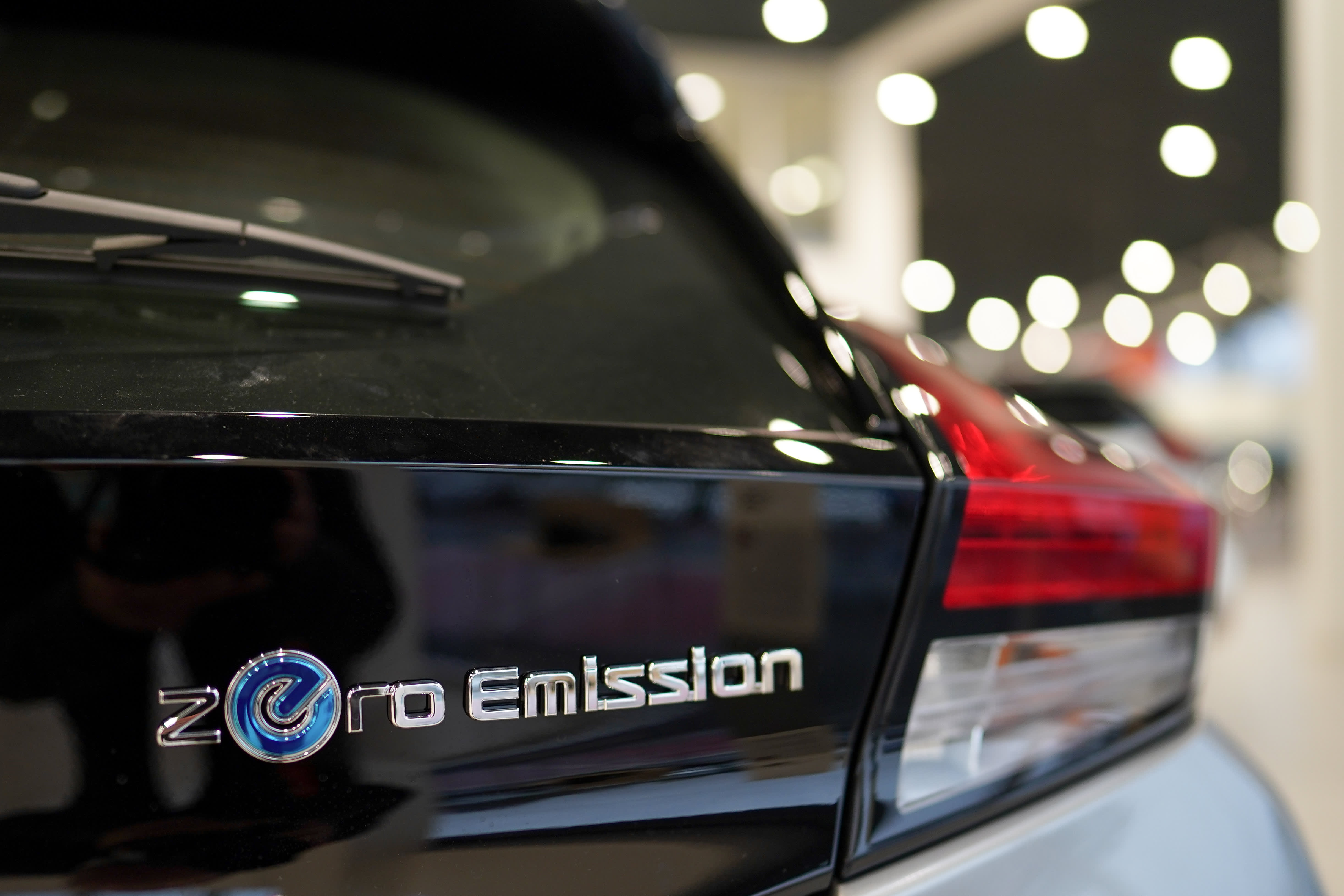This photo, taken in the U.K. on December 18, 2020, shows the back of a Nissan Leaf electric vehicle.
Ian Forsyth | Bloomberg | Getty Images
The CEO of Nissan reaffirmed the importance of electric vehicles to the carmaker’s future on Tuesday, telling CNBC that his company would be “building (on) our strengths to electrify 100% of our all-new vehicle offering from the early 2030s in key markets.”
Makoto Uchida’s comments echo an announcement made by Nissan at the end of January, when the firm said the Japanese, European, U.S. and Chinese markets would be the focus of its electrification goal for new vehicles.
In his interview with CNBC’s “Street Signs Europe,” Uchida also addressed the global shortage of semiconductors affecting the automotive industry, stating that it had “impacted our domestic and our overseas production.”
An increased demand for gadgets and electronic devices during the coronavirus pandemic has contributed to a global squeeze on the availability of semiconductors. This has hit the car industry, which is heavily reliant on the technology, particularly hard.
“We are working with our suppliers to minimize this impact,” Uchida went on to add, “and we are closely monitoring the situation and adjusting our production. We recognize the uncertainties will continue.”
In the three months ending Dec. 31, Nissan’s operating profit hit 27.1 billion Japanese yen, compared to 22.7 billion yen in the same period a year earlier.
For the fiscal year ending March 31, Nissan said it was now expecting a net loss of 530 billion yen, or roughly $5.1 billion. It had previously forecast a net loss of 615 billion yen.
The company has also revised its sales outlook to 4.015 million units, compared to a previous projection of 4.165 million units, a drop of 3.6%.
Changing times
As governments around the world announce plans to move away from diesel and gasoline vehicles, Nissan, alongside many other carmakers, is attempting to ramp up its electric offering and challenge firms such as Elon Musk’s Tesla.
South Korean carmaker Kia, for instance, will launch its first dedicated electric vehicle this year, while Germany’s Volkswagen Group is investing approximately 35 billion euros (around $42.35 billion) in battery electric vehicles and says it wants to roll out roughly 70 all-electric models by 2030.
Last month, the CEO of Daimler told CNBC that the automotive industry was “in the middle of a transformation.”
“Next to the things that we know well — to build, frankly, the world’s most desirable cars — there are two technological trends that we’re doubling down on: electrification and digitization,” Ola Källenius told CNBC’s Annette Weisbach.
The Stuttgart-headquartered firm was “pouring billions into these new technologies,” he added, stating they would “drive our path towards CO2 free driving.” This decade, he went on to claim, would be “transformative.”
